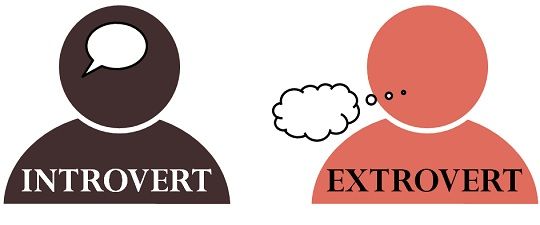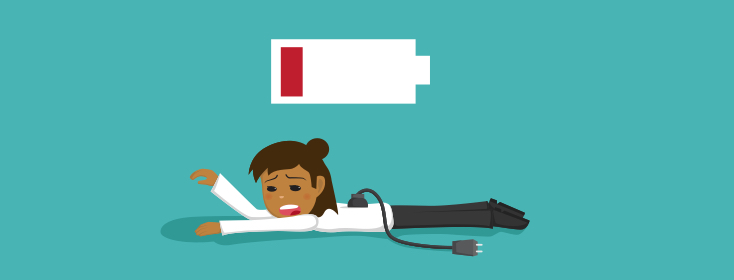How Much Do We Really Know About
Extroversion?
Summer comes with a load of social responsibilities which are created both by your friends and yourself. Even if you're an introvert who is perfectly happy sitting at home, you can't help but feel prone to a fear of missing out. I enjoy spending time with my friends and family but can't even fathom booking a social event for each day of the summer. Just thinking about filling in my calendar to that extent makes me feel exhausted. As I was trolling the internet looking for a cure to my FOMO I discovered an interesting article on the subject of introversion and extroversion. As I haven't thought about a segue between this topic and my next as of yet, I've decided to share it with you.
Introversion is primarily distinguished from extroversion by a need to recover after periods of social interaction. Introverts feel drained after these periods as they typically respond best to low-risk activities with lower levels of stimulation such as reading. So much so that frequent socializing leads to a state fondly referred to as 'the introvert hangover'. Symptoms include but are not limited to feeling anxious, fatigued, an inability to think clearly, and zoning out. I've been harping about the differences between introverts and extroverts for a few blog posts now but just realized that the two personalities are a bit more similar than they've always been made out to be.
A study conducted by two Finnish scientists, Sointu Leikas and Ville-Juhani Ilmarinen, from the University of Finland suggests that extroverts also need to recharge after 'excessive' amounts of socializing. It involved 48 participants, students, measuring and recording their Big Five states (Openness, Conscientiousness, Extraversion, Agreeableness, and Neuroticism) , mood, stress, and fatigue five times a day over a 12-day period. They reflected on those four aspects of their personality and how they had impacted them in the past hour. As well as how much they had socialized during said hour. The study also looked at the effects of conscientious behaviour on its participants such as having them work towards a goal.
The scientists racked up 2 328 observations but still scratched the surface in terms of the relatively low number of subjects used. The majority of the participants- 41 out of 48- were also female. Though the findings of this study are not concrete they certainly make room for more research to be done on this topic.
For both introverts and extroverts a positive mood and low levels of fatigue were directly related to conscientious and extraverted activities. However, these activities were also accompanied 3 hours later by fatigue. Levels of fatigue were influenced by the goal the individual had in mind and the number of people they interacted with, respectively. Leikas and Ilmarinen concluded that both extraversion and conscientiousness predict mental depletion after a 3 hour delay for introverts and extroverts alike.
Of course there are still major differences between introverts and extroverts, our brains are literally wired differently, but I think this study comes one step closer to more accurately defining introversion and extroversion. It also ensures that we can't sum up either personality trait in a sentence. They are too complex for that.
Maybe you're not the introvert or extrovert you thought you were before based on the media's adaptations of the terms and their misconceptions. You were misinformed. Maybe you have to update the excuses you use to avoid social situations if you are a self proclaimed introvert. Spending a lot of time with people might not be impossible or more difficult for you than it is for your extroverted counterparts after all. Admit it, you're just a homebody at heart and would rather keep the hangouts, brunches, lunches etc. to a minimum. If that’s the way you want to live your life then go right ahead. It’s how I intend on living mine.





Comments
Post a Comment